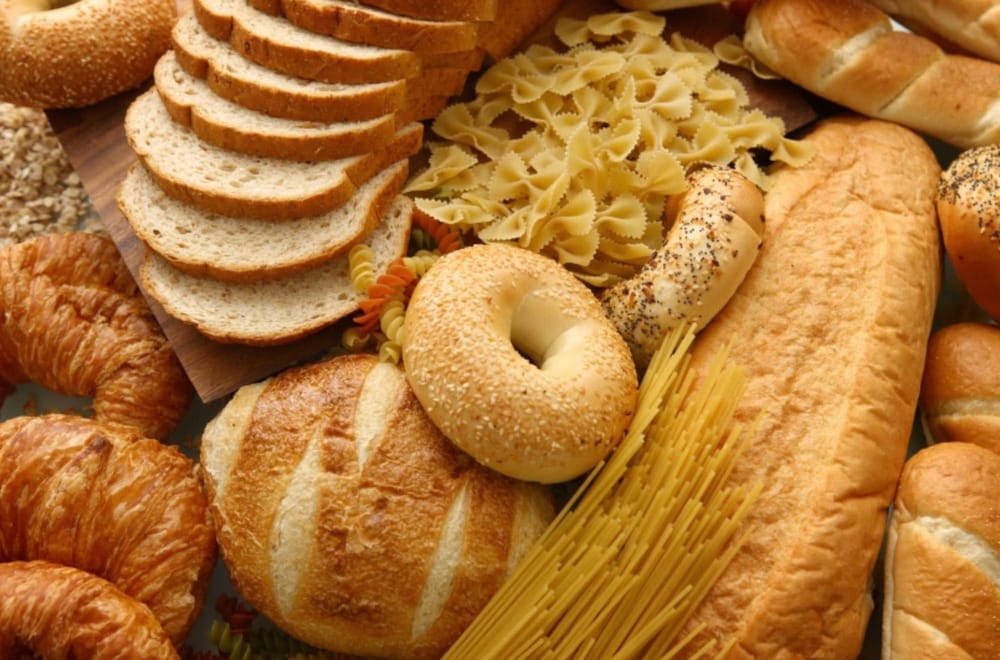The Gluten Sensitivity Myth

Rethinking what’s really irritating your gut
NaturalNews.com | Willow Tohi
- A major scientific review concludes that non-celiac gluten sensitivity (NCGS) is likely not a reaction to gluten itself.
- The research reframes NCGS as a gut-brain interaction disorder, closely related to irritable bowel syndrome (IBS).
- Symptoms are more often triggered by FODMAPs—fermentable carbohydrates found in many foods—or by psychological factors.
- Millions of people may be avoiding gluten unnecessarily, which can lead to nutritional deficiencies and increased food anxiety.
- Experts recommend medical testing for celiac disease before self-diagnosing and suggest a supervised low-FODMAP diet for relief.
For over a decade, gluten has been cast as a public health villain, driving a multi-billion dollar industry and prompting millions to purge wheat, barley and rye from their diets. The narrative of non-celiac gluten sensitivity (NCGS) became a common explanation for a host of digestive and systemic woes. Now, a landmark scientific review is challenging that narrative, suggesting that for the vast majority, the problem isn't gluten at all. Published in The Lancet and led by an international team from the University of Melbourne, this comprehensive analysis of decades of research indicates that NCGS is not a distinct gluten disorder but is more accurately a manifestation of irritable bowel syndrome (IBS), rooted in the complex dialogue between the gut and the brain.
The diagnostic dilemma and the placebo effect
The central issue with NCGS has always been its elusiveness. Unlike celiac disease—a serious autoimmune condition with clear biomarkers—non-celiac gluten sensitivity has no definitive test. It is typically a diagnosis of exclusion, often self-reported. The review’s findings reveal a critical flaw in this process: in blinded clinical trials, individuals who believed they were gluten-sensitive frequently reacted just as strongly to a placebo as they did to actual gluten. This pattern strongly suggests that factors beyond the protein itself are driving their symptoms.
“That told us something else—not gluten—was driving symptoms,” said lead author Jessica Biesiekierski, an associate professor at the University of Melbourne. The data is striking; the review notes that less than 3% of self-reported NCGS cases are validated by objective testing, and in controlled settings, only 16% to 30% of people show a specific reaction to gluten. This points to the powerful role of the "nocebo" effect, where a person's negative expectations can generate real physical symptoms.
The real culprits: FODMAPs and the gut-brain axis
If gluten isn't the primary trigger, what is? The research points to two main areas: specific carbohydrates and the nervous system. Many foods containing gluten are also rich in fermentable carbohydrates known as FODMAPs (Fermentable Oligosaccharides, Disaccharides, Monosaccharides and Polyols). These are found in a wide range of foods, including onions, garlic, beans, dairy and certain fruits. In sensitive individuals, FODMAPs draw water into the intestine and are rapidly fermented by gut bacteria, causing gas, bloating and pain—the very symptoms often attributed to gluten.
Furthermore, the review reclassifies NCGS as a "disorder of gut-brain interaction." This places it in the same category as IBS, where the complex, two-way communication network between the digestive system and the central nervous system is dysregulated. In this model, stress, anxiety and hypervigilance about food can amplify gut sensations, causing the brain to interpret normal digestive processes as painful. This creates a vicious cycle where fear of food leads to avoidance, which in turn increases anxiety and sensitivity. There is also high use of pesticides in many processed foods containing gluten, which could be an issue as well.
The unintended consequences of a gluten-free lifestyle
The widespread adoption of gluten-free diets, fueled more by popular belief than medical necessity, carries its own set of problems. The global gluten-free market is projected to reach $11 billion by 2033, yet celiac disease affects only about 2% of the population. For those without celiac disease, eliminating gluten can be counterproductive. Gluten-free products are often more expensive and are frequently lower in essential nutrients like fiber, folate, iron and zinc. This narrowing of the diet can also negatively impact the diversity of gut microbiota, potentially worsening digestive issues over time and fostering an unhealthy relationship with food.
A more informed path to gut health
So, what should someone do if they experience symptoms after eating pasta or bread? The first and most critical step is to consult a healthcare provider for testing to rule out celiac disease and wheat allergies. If those are eliminated, the focus should shift from gluten to a broader view of gut health. Experts recommend:
- Adopting a balanced, whole-foods diet before resorting to any elimination diet.
- Working with a registered dietitian to conduct a short-term, supervised low-FODMAP elimination diet to identify specific carbohydrate triggers.
- Addressing underlying stress and psychological factors that may be exacerbating gut sensitivity through therapies like cognitive-behavioral therapy or gut-directed hypnotherapy.
Redefining sensitivity for a healthier future
This pivotal research does not dismiss the very real suffering of individuals with digestive issues. Instead, it offers a more nuanced and empowering framework for understanding their conditions. By moving away from the singular focus on gluten, healthcare providers can offer more accurate diagnoses and effective, personalized treatments that address the whole person—body and mind. For millions, this new understanding could mean liberation from unnecessary dietary restrictions and a return to a less anxious, more nourishing relationship with food. The story of gluten sensitivity is being rewritten, not as a tale of a dietary villain, but as a complex chapter in the ongoing story of human health.
Sources:
Original Article: https://www.naturalnews.com/2025-11-18-gluten-myth-whats-really-irritating-your-gut.html

Comments ()